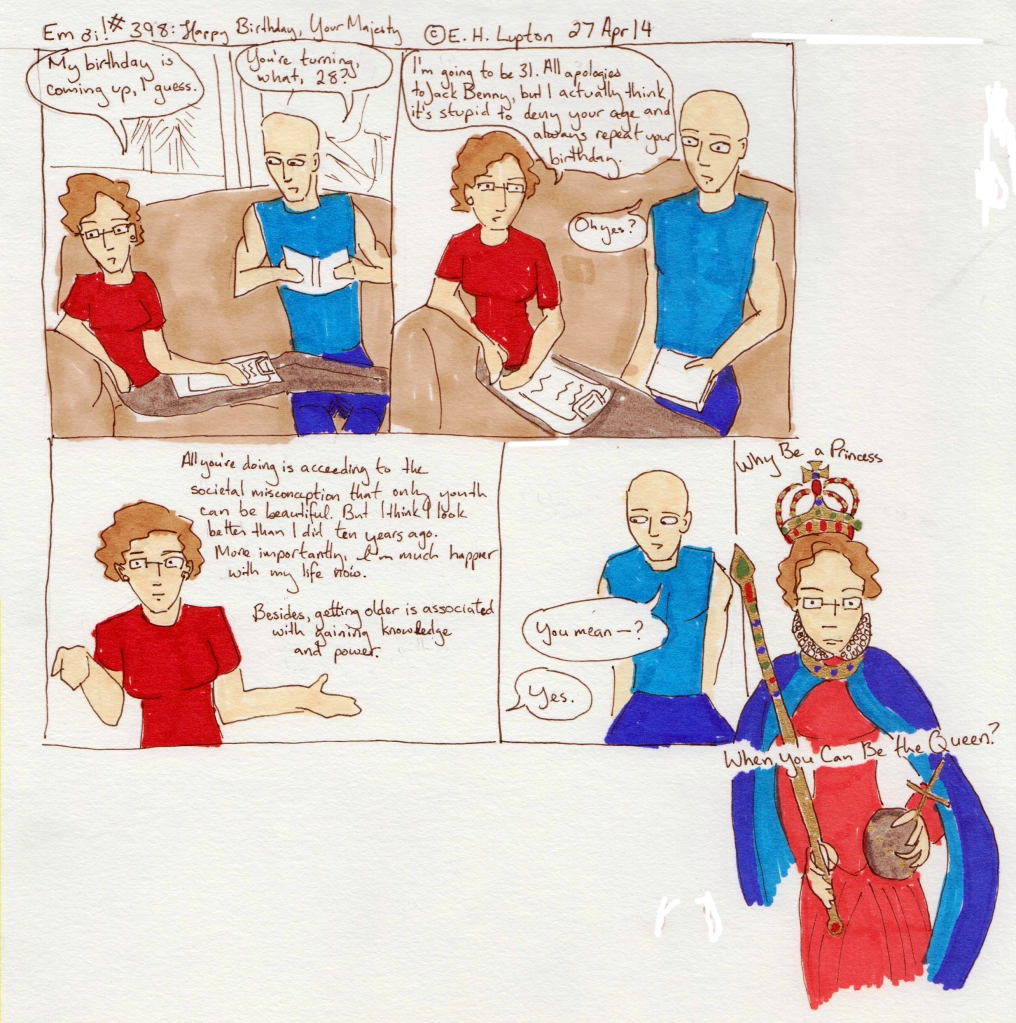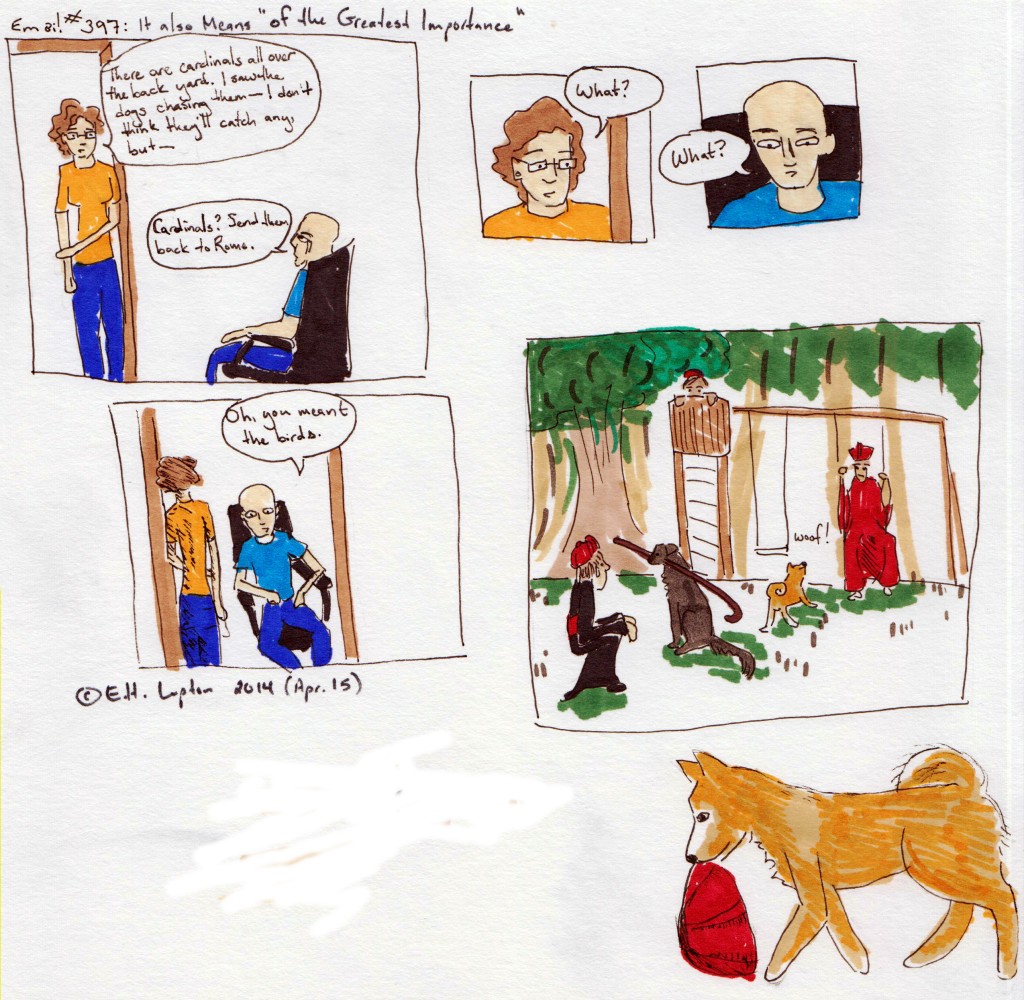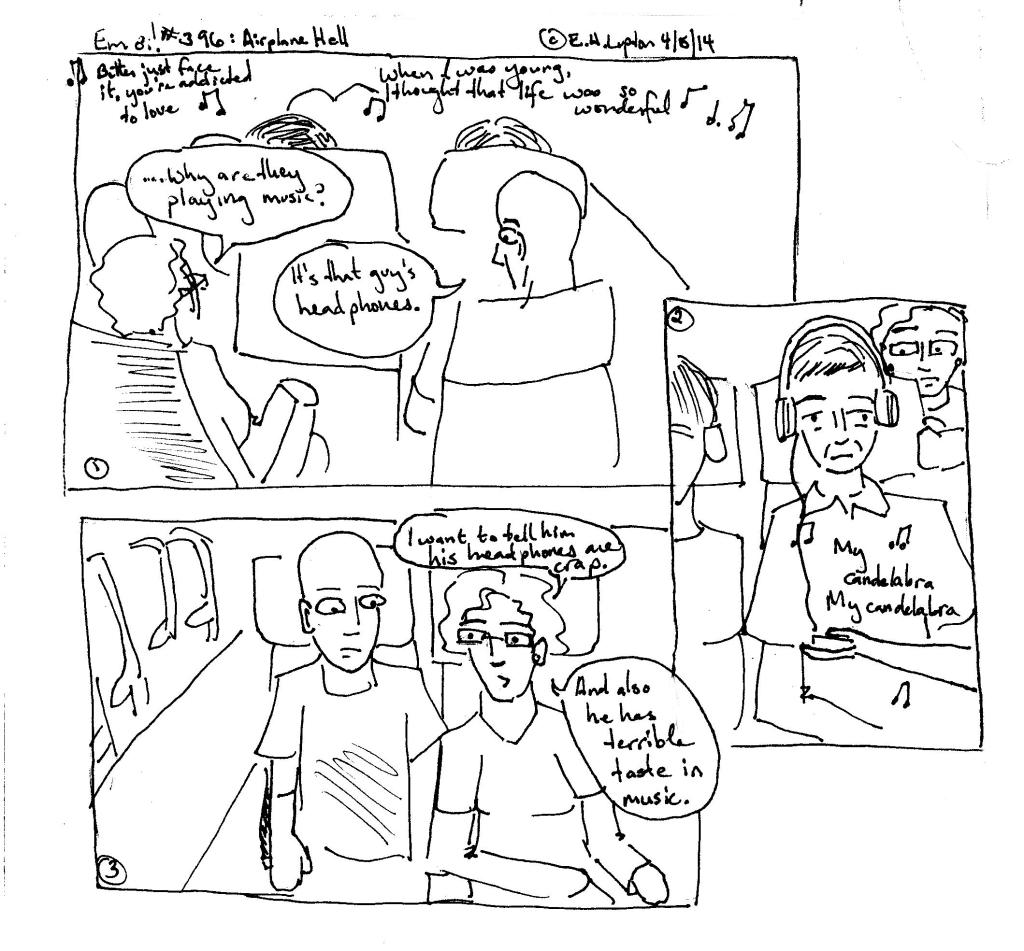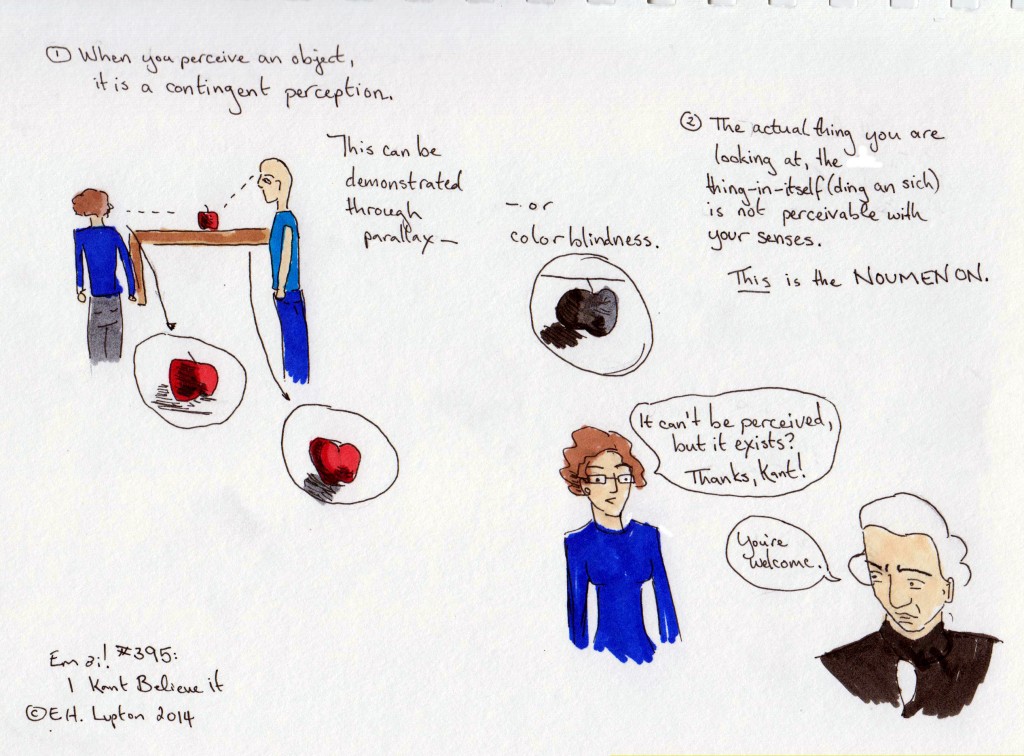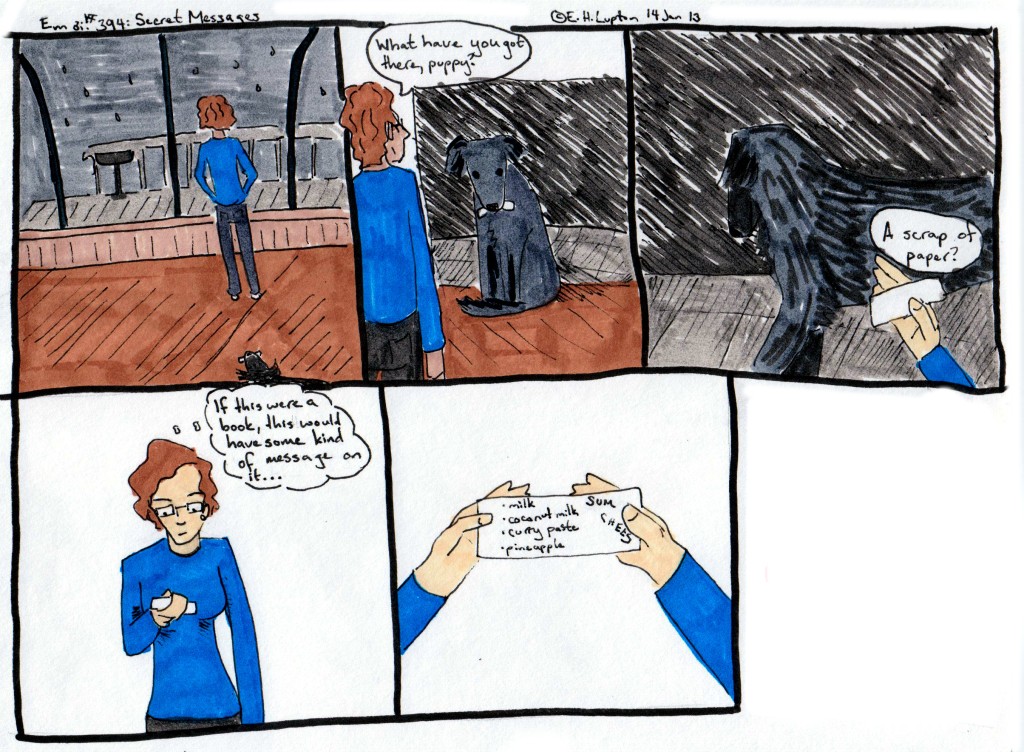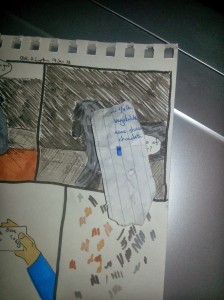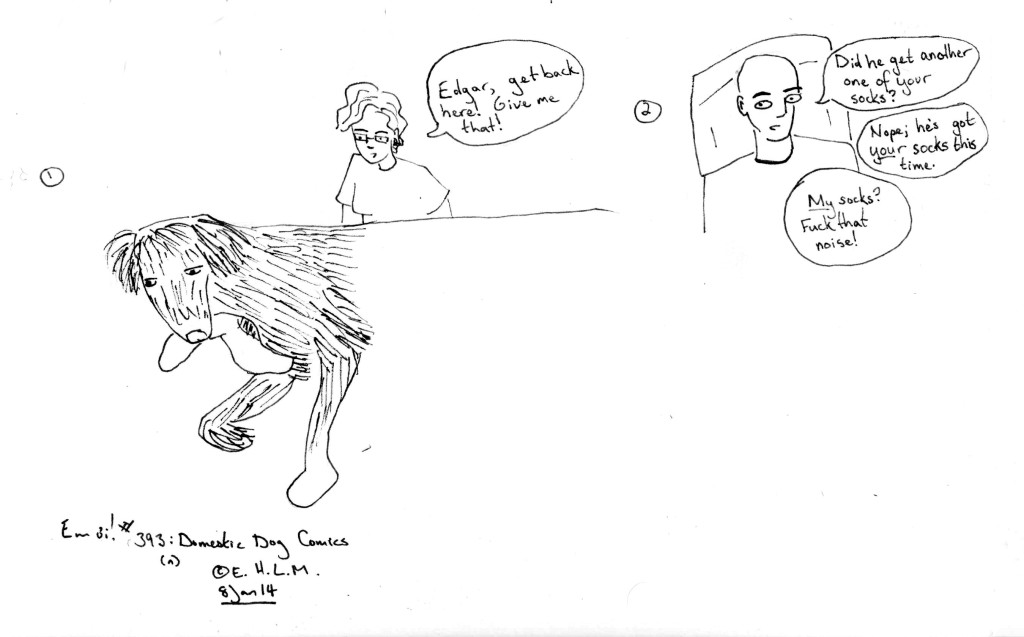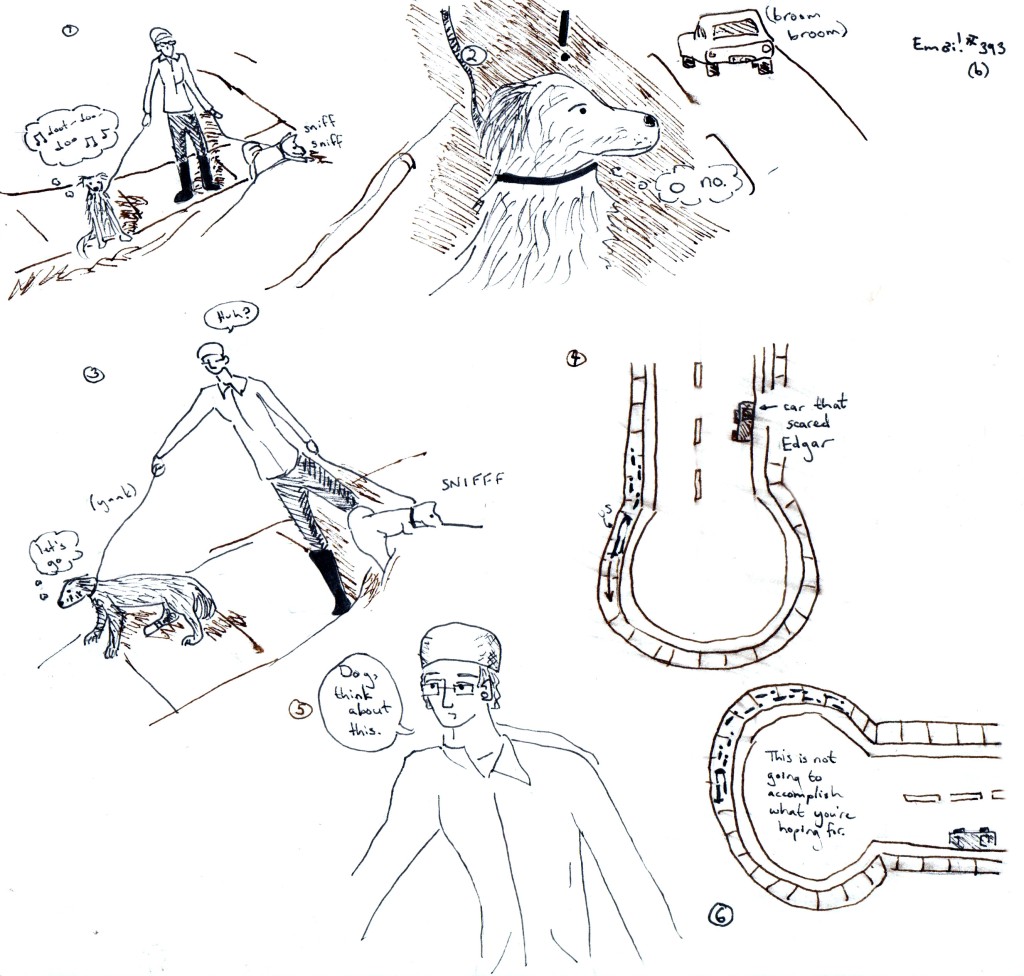Note: I read this book in October 2013, and worked on the review for almost six months, then forgot about it. I don’t know why this happened. The date in my Word doc is October 13th.
Alan Moore and Eddie Campbell. From Hell. Marietta, GA: Top Shelf Productions, 1999. 572 p. 095857834-6.
In Whitechapel, London, in the 1880s, humans live in powerless poverty and squalor. By the end of the decade, hundreds of the unemployed would be injured at the (1887) “Bloody Sunday” rally in Trafalgar Square, where they were protesting their lack of employment and the Irish Coercion Act, a crack-down that underscored how powerless the working class were. Beneath working class men, the “working girls” of Whitechapel were even less secure as they tried to make their way in the world. Often married very young, at the age of 12 or 13, they were condemned to poverty and prostitution when abandoned by their husbands (the ones who didn’t die in childbirth, anyway). By the end of the 19th century, wealthy women could inherit land, but womankind in general still could not vote. And worse, a monster was preying on the women of Whitechapel. In the fall of 1888, an unknown person or persons murdered at least five prostitutes in London’s East End, vivisecting four of them. “Jack the Ripper,” as the killer came to be known, was never caught, and the theories the case has spawned live on today, too many to enumerate.
Alan Moore and Eddie Campbell’s graphic novel From Hell takes as its starting point the theories of one Stephen Knight, who evidently heard the story in his book Jack the Ripper: The Final Solution from the illegitimate son of English painter Walter Sickert, Joseph “Hobo” Sickert. (Walter Sickert, incidentally, was somewhat obsessed with the murders and was fingered as Jack the Ripper by a number of theorists including Patricia Cornwell, based largely on the evidence that he drew moody paintings of murdered women in dark rooms and that he allegedly had a congenital deformity of the penis.) Joseph Sickert (also known as Joseph Gorman)’s story makes his father only an accomplice, but the whole thing is so rotten that’s hardly a consolation. Basically Knight/Sickert maintain that: Prince Albert Victor Christian Edward (“Eddy” to his friends), grandson of Queen Victoria, knocked up a working class girl, Annie Crook, and secretly married her. Of course Victoria finds out about the whole nasty business and sends the girl to her physician ordinary, Sir William Gull, who certifies her insane. The baby (a daughter), however, survives, and when a group of prostitutes led by Marie (or Mary) Kelly find out about her, they try to blackmail Walter Sickert and Victoria asks Gull to “take care” of them too.
As it happens, according to the way our boy Joseph tells the story, his mother was the daughter I just mentioned, so he is descended from legitimate but unacknowledged royalty. Decide for yourself how much doubt that casts on the story. The story also ignores the powerlessness of the prostitutes to actually carry through on any kind of threat–while it seems possible a gossip tabloid might have run the accusations (maybe), it seems unlikely that anyone would have believed them in the face of a denial from Victoria.
Running behind all of this is a hint of Freemasonry: Allegedly, both Prince Albert Edward (later Edward VII, Prince Eddy’s father) and Sir William were masons, hence Gull’s willingness to do something that would admittedly seem entirely insane to any reasonable person.
In the hands of Alan Moore, though, this story becomes slightly more elaborate. Gull is a mason, yes, and a patriot. He has also suffered a stroke-cum-theophany; it is not entirely clear that he is the same person after that event, although the implication is that he is, just with more outlandish theories. Gull is certainly bidden on to his task by Queen Victoria, but he also sees himself as striking a blow in a battle for supremacy between men and women that dates back to the stone age (see Robert Grave’s The White Goddess and other books about the idea of a mother goddess being supplanted by a father god for more of this idea). He is an unrepentant misogynist who worries that women will somehow gain back the upper hand and (re)subjugate men. Additionally, he sees himself as moving society forward, noting that some crimes can cause the public to agitate for certain things, as in the case of the Ratcliffe Highway Murders leading to the formation of a police force in 1811. What exactly he is leading society toward is unclear, but at a pivotal moment he tells his (semi-literate) driver and assistant, Netley, “I have given birth [to the twentieth century].”
Moore does a good job of allowing Gull enough time to explain his theories. In fact, he spends an entire chapter driving around London with Netley, talking about the architecture of Christopher Wren and Nicholas Hawksmoor, the Dionysian architects, the solar and lunar symbols of the battle between men and women, prostitution through the ages, and how all these symbols, both pagan and Christian, get rolled up together into one big ball of conspiracy that makes sense if you don’t look at it too hard. Then Moore undercuts Gull brilliantly: at the beginning of the next chapter, we see the morning routines of Sir William contrasted against the woman who will be his first victim, Polly Nicholls. Gull wakes in a bed, is fed a good meal prepared by his cook, and is driven to work in a coach. Polly, on the other hand, is sleeping on a bench, sitting up against a wall with a clothesline strung across to stop her from falling over. This was in fact the cheapest form of accommodation available to Londoners of the era. To see the privilege on the one hand and the crushing poverty set against it is to realize how out of touch with reality Gull really is, and how unlikely his fear that women will somehow “win” is.
The story from there on out is roughly the one you are probably somewhat familiar with. Women die, the police continually foul up the investigation, and Gull grows increasingly out of touch with reality. The narrative begins to flip back and forth between Gull and Inspector Abberline, the hapless but clever detective assigned to the case.
It seems moot to discuss Sir William Gull and whether or not he was really the murderer. Nearly every man of any social standing who lived in London during that autumn has been theorized to be the Ripper, as well as most men of no social standing. Some of the information related here about Gull seems to be true: he did come from an impoverished background, he was a doctor, he was quite intelligent, and he did seem to have some disregard for what today we would consider to be medical ethics. His selection as the murderer makes as much sense—or lacks as much sense—as anyone. Personally, I think there were some who have been named, like Francis Tumblety, a known misogynist who boasted that he had a collection of female reproductive organs, who were probably more likely suspects. But in the context of From Hell, Gull’s character is built so that he makes sense as the killer, and that is what matters. It can help to remind oneself that this is fiction based on facts; as Eddie Campbell put it in a blog post, he’d “always liked to imagine that our William Gull is a fiction who just happens to share a name with a real one who existed once” (source).
In a certain sense, it doesn’t matter who the killer actually was because the killer was everyone. Several of the women Jack the Ripper offed would have been dead within a year or so anyway, since they were impoverished, living in insanitary conditions on the streets of Whitechapel, which as far as I can tell was quite a bit worse than what you might find in a major city today—for example, Londoners of this era had to deal with diseases like tuberculosis, attacks from packs of feral dogs, crime, diseases caused by the terrible pollution and inadequate nutrition, and poor housing . . . and of course, if they were lucky enough to have a job, they might have to face conditions in the factories . . . if not, there were workhouses. This is reinforced by the scene in which Campbell and Moore depict hundreds of people writing letters to the police posing as Jack—a disturbing but real event. To put on my Žižek hat for a moment, is this an outgrowth of Victorian anxiety about the poor? Or, alternatively, about women, women’s place in the world, sex, religion, colonialism and aliens in the metropol[1] . . . the list goes on. Moore presents a holistic view of the crime that, in some way, should clarify what happened but in actuality serves only to confound what has happened. It is a conceit of crime fiction that crimes can be picked apart and a definite killer and motive can be found. In reality, life is rarely cut-and-dried. Certainly, general motivations can be discerned, but what really causes a certain person to commit a specific crime?
The thing I keep coming back to is that Mary Kelly never really finds out what’s happening to her. The audience knows, sort of, both the reasons Victoria objected to her continuance and the reasons Gull gives. Mary Kelly at best has a small sliver of the picture; she is able to piece together that her friend Annie Crook got into trouble with royalty and that her friends are being murdered one by one. She can’t see the whole picture, and Gull doesn’t oblige her with a moustache-twiddling moment of revelation before he offs her.[2] I feel like because I do see the whole picture that this shouldn’t be an issue, but I keep circling around the lack of resolution (obviously, because I’ve been writing this review for six months—can you tell?). Perhaps this is reminiscent of the way the people of London felt, knowing something was walking among them that they could not understand. Mary Kelly, for her part, likely felt nothing at all for very long.
To bring this to a kind of conclusion: The collected version of the comics has not only a short epilogue, “Dance of the Gull Catchers,” that tackles some of the difficulties surrounding naming Gull as a suspect, but also Moore’s extensive annotations explaining the origins of his theories and various obscure pieces of Victoriana. The art is illustrative without being overly graphic. The writing is solid. Really, if you haven’t read this book yet . . . why not?
Notes
[1] The Victorians were, as far as I can tell, a very anxious people. Or at least a people whose anxieties have been highly researched.
[2] I should mention, for those unfamiliar with the Kelly murder, it was really gruesome. The real life killer really dissected her; the best that can be said is that the coroners at the time thought she had been killed relatively quickly and then mutilated. I don’t recommend looking up the photos unless you have a strong stomach.



